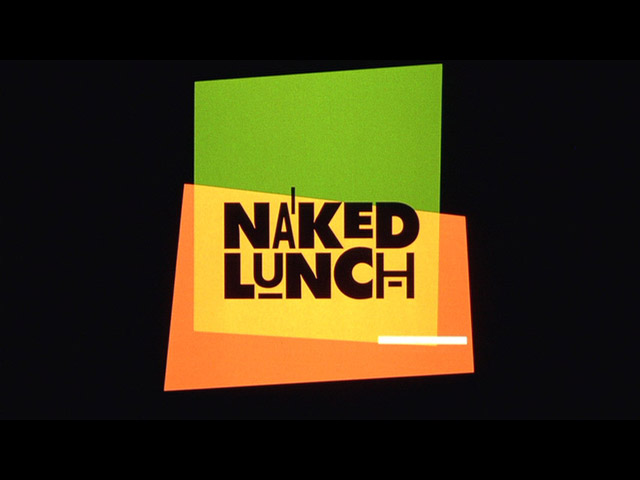
For about eight or nine years I've had an idea for a story that begins with a man picking up someone else's lost keychain in a convenience store. The basic plot involved him becoming convinced the owner of the keys had been kidnapped, and he spends the story uncovering "clues" and building a complicated, paranoid narrative -- but the trick is, he's imagining all of it; nothing is actually wrong and it's all in his mind. The further he would go the deeper and crazier the conspiracy would seem. The idea started as a novel and never got much farther than fifty or sixty pages of escalating madness, but I always held fondly onto the idea of it. I always considered it my modern-day Don Quixote by way of David Lynch and Dostoevsky, about a man who reads too much Raymond Chandler and, I don't know, John Le Carré maybe. The paranoia and subjective reality always appealed to me, but I never knew how to convey the world as the hero saw it with enough realism that the audience would know what's going on. Well I hit some classics in my mind-webbing of this story, but I forgot an obvious choice for a story of this type: Kafka (which seems weird now, but you know how it is). When Cronenberg put together this script, he definitely didn't forget about Kafka. I wonder if a better, more Kafkaesque film has ever been made.
Rewatching Naked Lunch makes me realize two things. First, I was overthinking the "how" of my character's subjective reality and second, I was underthinking the "what" of that reality. Naked Lunch is such a seductively unpleasant trip, a world where the ground is never really stable to begin with and a hero -- Peter Weller is amazingly nuanced as the keeping-it-together-while-falling-apart Bill Lee -- who sinks deeper each minute. There seems to be no end to the depths of madness and paranoia, assisted here by impossible fictitious drugs that, too, are part of the possibly-hallucinatory whirlwind, and here the boundless sinking becomes its strength. It's perfect to populate this world with Cronenberg's creepy organic models and sexualized, oozing mutants; you can't bear to look at the fascinating grotesqueries but you can't bear to turn away, either, and the deeper Bill spirals into paranoid philosophies of espionage, addiction and homosexuality the more engaging it is to see.
I've never been formally educated on topics like schizophrenia or delusion but I've been around those who've had it, and it feels to me like this is a story that does it right. Each new twist of the crazy screw in Bill's world could be the ravings of a hurt, confused subconscious or the truths of a universe out of control. And I haven't even mentioned the metatextuality of the story, combining elements of the life of William S. Burroughs (who used the pen-name William Lee) and the accidental homicide of his wife into some of the more lucid portions of a stream-of-consciousness novel with no real center. If any of the universe of Naked Lunch exists outside the character's (Bill's) head, then it still only exists, presumably, in the novelist's (William's) head -- or else it is a strange creation plucked right out of the director's (Cronenberg's) head. So when opinions and philosophical musings about the nature of art, editing, addiction, sexuality, gender politics, or anything else come up -- well, it's a mess. To top it off, the character Bill inside the story is, apparently, without his full understanding or cognizance, sending his "reports" to his two best friends (a Kerouac analog named Hank and a Ginsberg analog named Martin). Only this report is a novel, a novel Bill is writing, called of course Naked Lunch.
But none of this ever feels confusing, within the confines of the story. Much of that is due to the careful timing and pacing of the new twists in the conspiracy, the transmutation of each character from ally to enemy, the evolution of drug from bug powder to black meat to Mugwump jism. Each of the increasingly weird typewriter-bugs feeding him stranger and stranger information about the people and world around him but it always feels like an impulsive thought Bill might be having already, a crazy notion of who is his friend and who is his enemy that a sane person would disregard easily. And they come at opportune times, corresponding to moments of solitude, often when he has just or could have just taken drugs, or has a moment to pause and think. Call it insanity, call it drug-induced hallucination, or call it unpeeling layers of the world, but they come in precisely placed points to keep the ground constantly moving without feeling disorienting and confusing. Believe it or not. But most of what I think grounds the story is Peter Weller's performance, and the shifting-but-nuanced performances of those around him, especially of course Judy Davis. It's hard to imagine how you'd go about directing these actors in these roles, even for a man who by this point in his career had been directing people covered in prosthetics and goop for decades. That everything feels pitch-perfect right when you don't even know what key the song is in speaks volumes to Cronenberg's mastery and sure-footedness. Easy decisions aren't made; interesting ones are. The story is fearless, and rushes headlong into new territory with a kind of mad-bastard confidence that I frankly envy.
Inspirational and insane. This has always been one of my favorite films by one of my favorite directors.

No comments:
Post a Comment